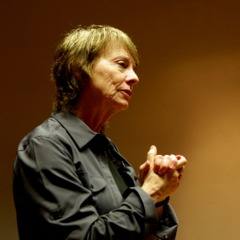Imagination Quotes - Page 66
Hugh Kingsmill (1949). “The Progress of a Biographer”
The imagination is the secret and marrow of civilization. It is the very eye of faith.
henry ward beecher (1858). “life thoughts,”, p.96
I call people rich when they're able to meet the requirements of their imagination.
Henry James (2013). “Delphi Complete Works of Henry James (Illustrated)”, p.1417, Delphi Classics
The imagination, give it the least license, dives deeper and soars higher than Nature goes.
Henry David Thoreau (2009). “Walden”, p.186, Cosimo, Inc.
Henry David Thoreau (2014). “The Maine Woods”, p.93, Graphic Arts Books
Hannah More (1838). “The Poetical Works of Hannah More”, p.73
H.L. Mencken (2012). “Mencken Chrestomathy”, p.23, Vintage
Imagination is like the drunk man who lost his watch and must get drunk again to find it.
Guy Davenport (1997). “The Geography of the Imagination: Forty Essays”, p.5, David R. Godine Publisher
Grace Lin (2013). “Fortune Cookie Fortunes”, p.15, Knopf Books for Young Readers
Gloria Steinem (2012). “Revolution from Within: A Book of Self-Esteem”, p.132, Open Road Media
"The Dagger with Wings: A Father Brown Mystery". Book by Gilbert K. Chesterton, 1926.
George Kohlrieser (2011). “Hostage at the Table: How Leaders Can Overcome Conflict, Influence Others, and Raise Performance”, p.33, John Wiley & Sons
Imagination is not the exclusive appanage of artists, but belongs in varying degrees to all men.
George Henry Lewes (1891). “The Principles of Success in Literature”
George Gilder (2013). “Knowledge and Power: The Information Theory of Capitalism and How it is Revolutionizing our World”, p.92, Regnery Publishing
We are all of us imaginative in some form or other, for images are the brood of desire.
George Eliot (2005). “Four Novels of George Eliot”, p.588, Wordsworth Editions
George Eliot (2005). “Four Novels of George Eliot”, p.59, Wordsworth Editions
Science becomes dangerous only when it imagines that it has reached its goal.
1906 The Doctor's Dilemma, preface,'The Latest Theories'.
Geoffrey Chaucer (1956). “The Canterbury Tales”
Literary imagination is an aesthetic object offered by a writer to a lover of books.
"Fragments of a Poetics of Fire (A Retrospective Glance at the Lifework of a Master of Books)". Book by Gaston Bachelard edited by Suzanne Bachelard, 1988.







